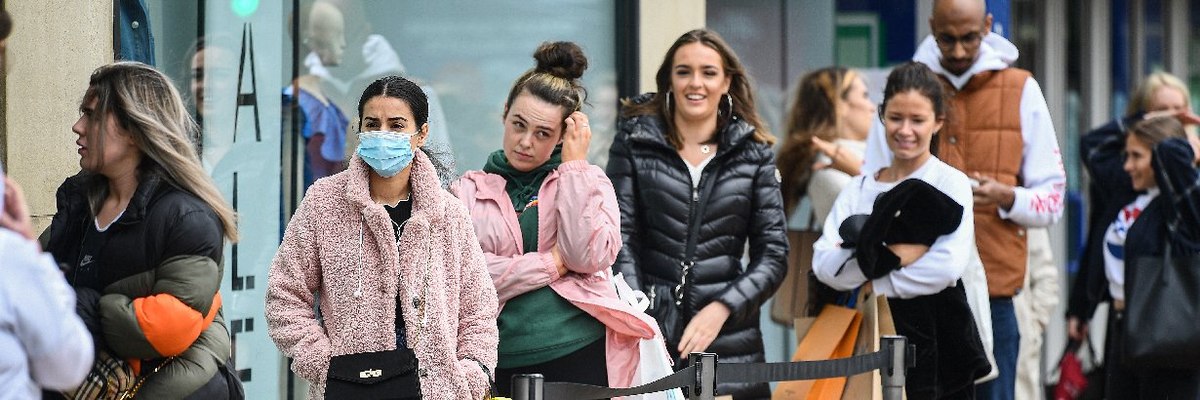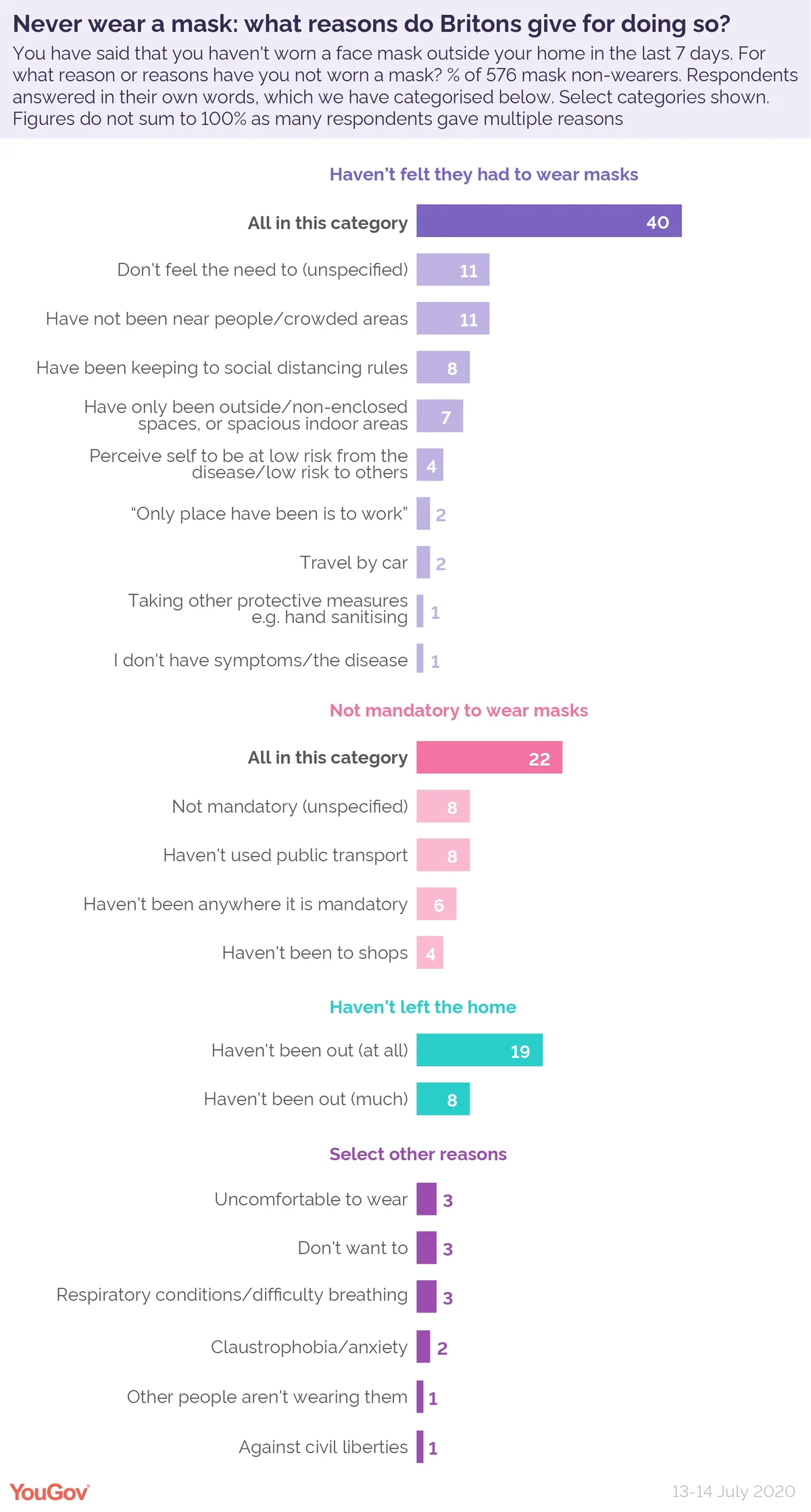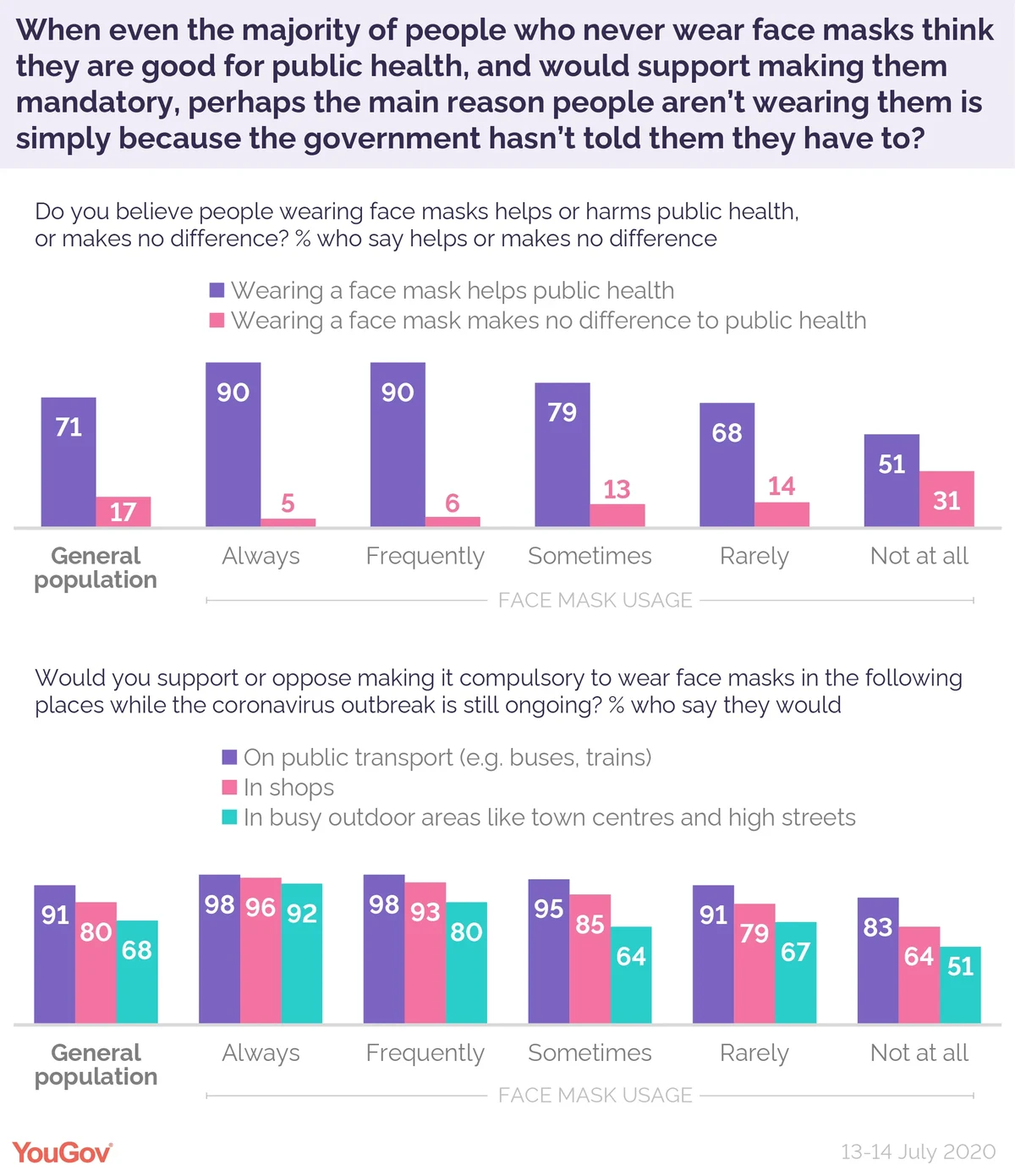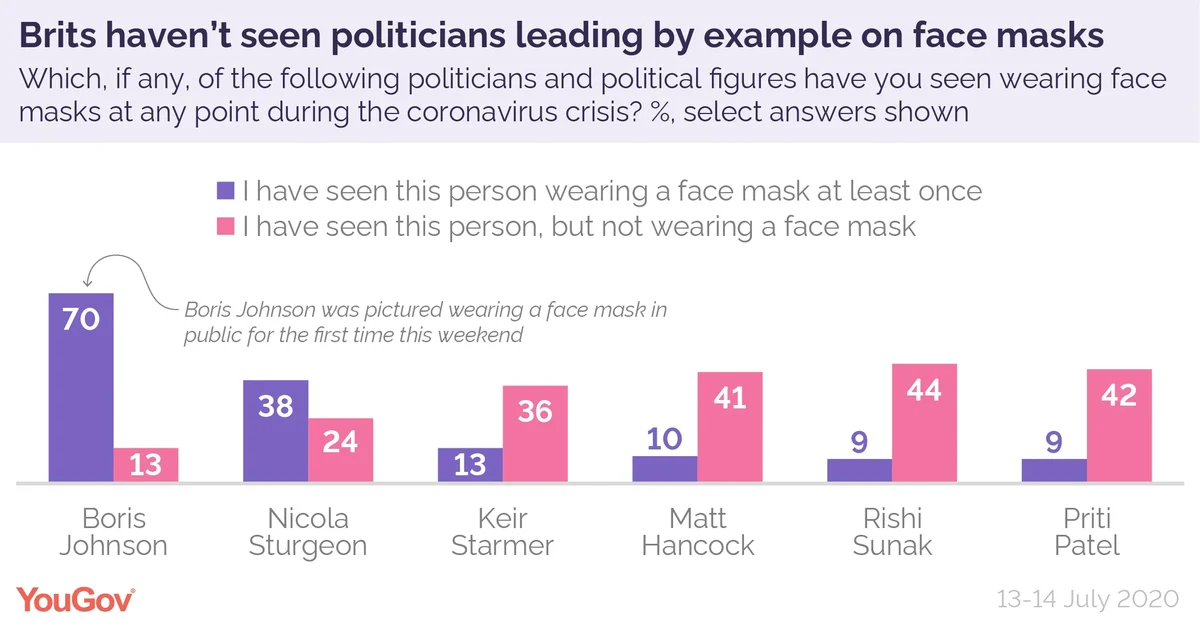YouGov data shows that the public may simply be waiting for the Government to tell them they have to
The proportion of Britons wearing face masks during the coronavirus crisis has remained stubbornly low, compared to other countries. This is despite the fact that Britain has been one of the hardest-hit nations by the pandemic (indeed, it could be the reason for it).
It is vital to public health that we understand why. So a new YouGov survey has asked Britons who have not been donning face coverings their reasons for not doing so.
Adapting the face mask question we use as part of our coronavirus partnership with Imperial College, the results showed that 37% of Britons hadn’t worn a face mask outside their home in the preceding seven days.
Four in ten told us they haven’t done so because they don’t feel like they’ve needed to – often for reasons like they’ve been keeping away from crowded areas (11%), are abiding by social distancing rules (8%), or are only going outdoors or to non-enclosed areas (7%).
One in five (22%) said it’s because masks aren’t mandatory, either in general or in the situations in which they have found themselves.
Another common response, at 19%, was simply that mask non-wearers hadn’t left their home in the past week e.g. because they are shielding. A further 8% said they had only rarely ventured outside in the preceding seven days.
Complaints about discomfort and inconvenience were only raised by a tiny fraction of non-wearers.
Most Britons – including non-wearers – believe masks have health benefits, and want to see their use enforced
What seems to be clear is that many Britons see face masks as an inherent good, even among those not wearing them, but that many will not do so until the Government tells them they have to.
Overall seven in ten Britons think wearing a face mask helps public health, with those who wear face masks more frequently being more likely to think this. Nevertheless, fully half (51%) of those who never wear a face mask say they think such covering are good for public health.
And Britons overwhelmingly support making their usage compulsory. On public transport 91% of Brits say that covering the face should be required; 80% think the same when in shops, and 68% want to see it made mandatory in busy outdoor areas like town centres and high streets. In all three cases this includes a majority of those who haven’t been wearing face masks themselves.
What do Britons think the rules on wearing face masks are?
The survey – conducted prior to the Government’s announcement that face masks will be compulsory in England from July 24th – found 58% saying face mask usage in shops is recommended, although optional. A further one in five (20%) believed it was already compulsory, while another 18% thought there was no Government guidance in this area.
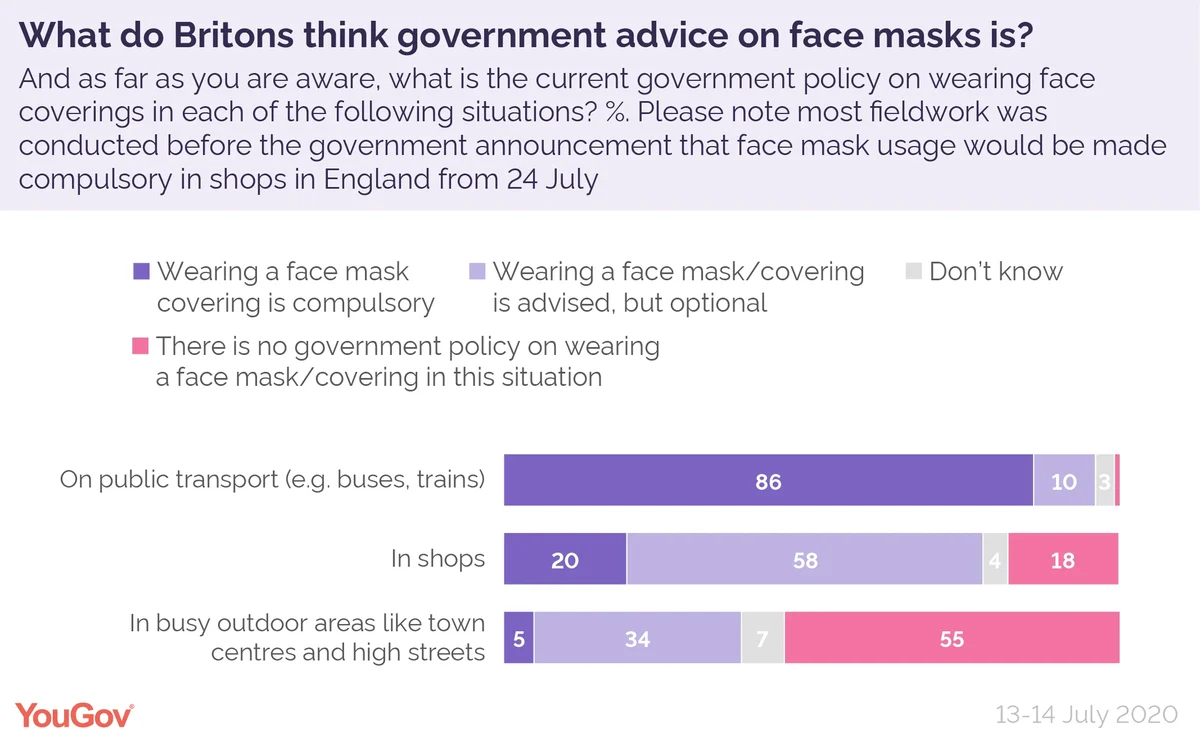
Most Britons (55%) don’t think the Government has a policy on wearing a face mask in settings like town centres and high streets. A further third (34%) think official advice has been to wear masks but compliance remains optional, and 5% think masks are mandatory in such spaces already.
Britons are, however, well aware that face masks are currently compulsory on public transport (86%).
Brits haven’t seen politicians leading by example on face masks
Face mask usage in Britain has been low compared to other countries, and this is true among our politicians as well. This weekend marked the first time that Boris Johnson had been seen in public wearing a face mask.
This did not go unnoticed by the general public, with 70% of Britons saying they had seen the Prime Minister wearing his facial covering, although it is not clear how many thought they had seen him protecting his face prior to the weekend’s publicity.
The facial covering trend had not yet caught on with other politicians at the time the survey was conducted, and this is reflected in the results. The only other political figure a sizeable proportion of the population have seen sporting a face covering is Nicola Sturgeon, at 38%.
Just 13% reported having seen Keir Starmer donning a mask, 10% for Matt Hancock and 9% for Rishi Sunak and Priti Patel. While obviously these latter politicians receive far less media attention than the Prime Minister, the number of Britons who don’t think they seen these people wearing a mask far outnumber those that think they have.
